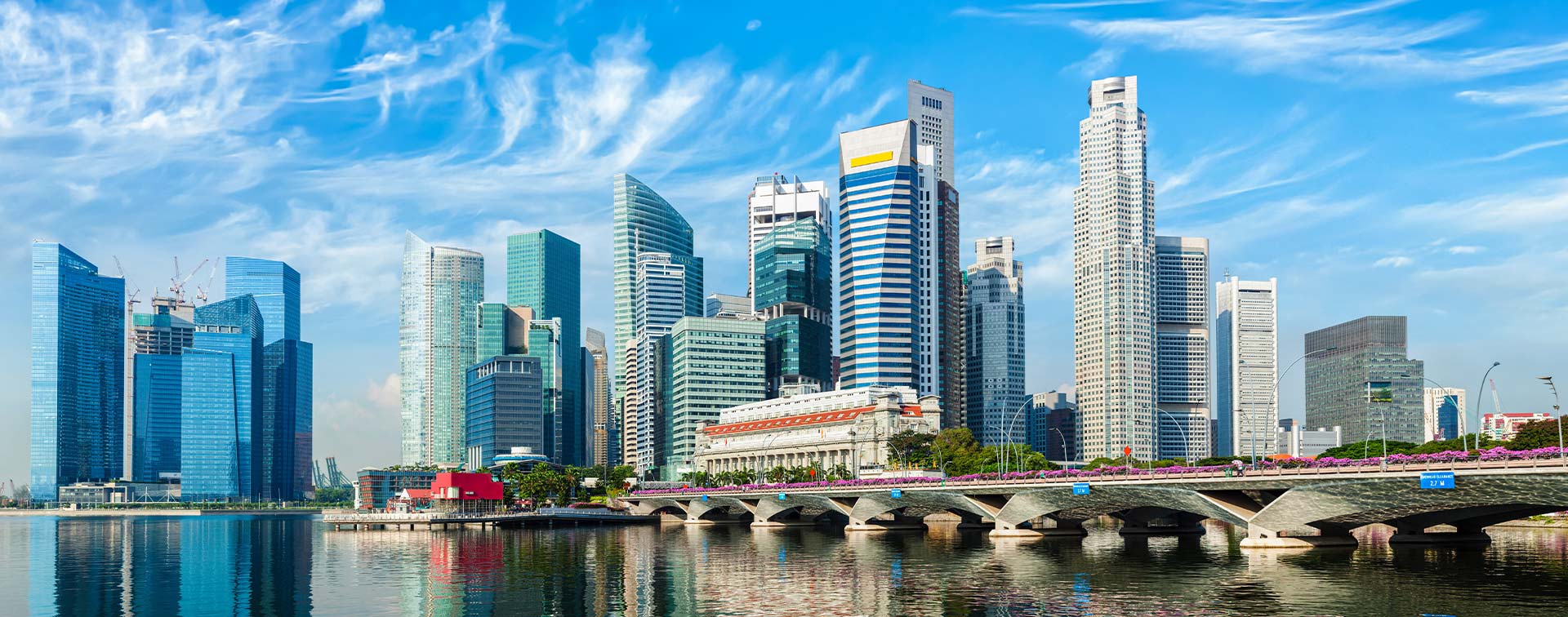
Curtis S. Chin is a former US Ambassador to the Asian Development Bank, the inaugural Asia Fellow of the Milken Institute, and managing director of advisory firm RiverPeak Group, LLC.
Amid the “exceptional uncertainty” and divergent recoveries that color the IMF’s economic outlook for the diverse and dynamic Asia Pacific region, green shoots of hope, economic growth, and innovation have begun to emerge.
This is good news for business leaders, industry professionals, and policy makers as well as others whose travels to or within the region have been stymied by quarantine requirements and other travel restrictions.

Perhaps unimaginable a year ago when the World Health Organization declared the spread of the novel coronavirus SARS-CoV-2 to be a pandemic, since February 2021 governments have been rolling out vaccination programs in large parts of Asia, including the region’s biggest economies — China, Japan, India, South Korea, Australia, and Indonesia.
Both China and India are also playing important roles in assisting some of the region’s developing nations gain access to vaccines as developed nations have snapped up supplies of the pioneering Pfizer-BioNTech and Moderna vaccines.
India, in particular, with its huge capacity to make coronavirus vaccines has taken “vaccine diplomacy” to new levels. According to media reports, Indian companies including the Serum Institute of India (SII), Bharat Biotech, Biological E, and Cadila Healthcare have the combined capacity to manufacture billions of doses of their own vaccines or contract-manufacture for others.
While delivery delays have been reported amid India’s own battles against a resurgent coronavirus, SII — the world’s biggest single vaccine manufacturer — is already producing the AstraZeneca vaccine for several countries. And amid mounting China–India rivalry, Asia Pacific nations in need could well also benefit from the so-called Quad nations of the US, Japan, Australia, and India coming together on financing arrangements to boost India’s vaccine output even further.
The aim is to reduce manufacturing backlogs, speed up vaccination, and defeat some of the coronavirus mutations.
Despite rising hopes for a turnaround, Asia Pacific nations understandably remain wary of new variants and new waves of infections. China, where the coronavirus was first identified, has been among the most aggressive in fighting the virus at home, leading to significant domestic and international mobility restrictions.
De facto visa bans and stringent testing requirements have even provoked international higher education students ‘locked out’ of China to take to social media with hashtags such as ‘TakeUsBackToChina’ and ‘TakeUsBackToSchool’ in protest against what they see as inconsistent and poorly communicated policies.
Hong Kong, New Zealand, and Thailand — three of eight economic destinations offering up residence- and citizenship-by-investment (RCBI) programs — saw outbreaks leading to added travel restrictions and/or renewed shutdowns earlier this year. Australia and New Zealand have recently announced, however, that the “trans-Tasman bubble” allowing travel between the two nations will open on 18 April. Meanwhile due to the threat of the coronavirus Japan has made the difficult decision to bar spectators from abroad from the rescheduled Olympic and Paralympic Games Tokyo 2020, now planned to commence in July.
With so much in flux, the strength of a recovery in any given Asia Pacific nation is likely to vary significantly depending on access to medical interventions, effectiveness of policy support, and exposure to cross-country spillovers among other factors, according to the IMF.
In its April world economic outlook, the IMF projected the global economy to grow by 6.0% in 2021 and 4.4% in 2022. This included a 2021 annual GDP growth projection of 12.5% for India, 8.4% for China, 4.9% for Southeast Asia’s ‘ASEAN 5’ — Indonesia, Malaysia, the Philippines, Thailand, and Vietnam — and 3.3% for Japan.
And notably, amid this diversity, innovative green shoots have emerged to serve those for whom and where mobility is a necessity. A case in point is Singapore.
Singapore’s wealth and reputation have been built in part on its connectivity to the region and globally. The vibrant hub city-state depends on open sky and open borders, according to Robin Hu, head of international policy and governance and institutional relations at Temasek and chairman of SingEx-Sphere Holdings — two of the developers of the world’s first “bubble facility” for business travelers.
Opened in March, the unique 780,000 square foot facility named ‘Connect@Changi’ was built inside the Singapore Expo Convention & Exhibition Centre near Changi Airport and has 150 guest rooms, gym pods, and 40 meeting rooms. Hu points out that in the absence of such a facility, travel options are essentially binary — one can either stay at home due to travel restrictions or fly overseas and endure long periods of quarantine.
Approved business travelers can now fly in and bypass Singapore’s mandatory 14-day quarantine by staying in the bubble facility. Meals are delivered, and business meetings can be conducted in rooms divided with air-tight glass panels and separate ventilation systems. Business travelers cannot, however, leave the facility. Hu says that the Connect@Changi was created because Covid-19 could have a longer tail than anticipated and business travelers would need a safe place to meet their counterparts and associates.
Singapore’s Prime Minister Lee Hsien Loong suggested during a BBC interview that vaccination passports could be part of the recovery process but warned it will be some time before international travel returns to pre-pandemic levels. “It will not be like before where you can just buy a ticket, hop onto the plane and go off to Hong Kong, Bangkok, or Bali for a weekend or a casual holiday,” he said. “Hopefully by the end of this year or next year the doors can start to open, if not earlier.”
Singapore has put forward an innovative means to address restrictions in mobility. Time will tell if business travelers will take to the solution offered up by Connect@Changi. It is, however, innovation, a sense of community, and a willingness to reassess, reimagine, and reinvent in the face of the pandemic — and not vaccines alone — that will help speed Asia’s return to global mobility and its place as an economic region on the move.
References
Alberti, M, and Watson, A. “Australia and New Zealand's Travel Bubble Officially Opens April 18.” CNN. Cable News Network, April 6, 2021.
Ghosal, A. “AP Interview: India Could Resume Vaccine Exports by June.” AP NEWS. Associated Press, April 7, 2021.
Lo, K. “Coronavirus Visa Uncertainty Turns Foreign Students against China.” SCMP. South China Morning Post Publishers Limited, December 26, 2020.
Menon, P. “New Zealand Locks Down Auckland after 3 New Local COVID-19 Cases.” Reuters. Thomson Reuters, February 14, 2021.
Reuters. “India Plans to Ramp Up Vaccine Production to Counter China's Vaccine Diplomacy.” livemint. mint, March 8, 2021.
Reuters. “Quad Nations Meeting to Announce Financing to Boost India Vaccine Output, U.S. Official Says.” CNBC. CNBC LLC, March 9, 2021.
Tokyo 2020. “Statement on Overseas Spectators for the Olympic and Paralympic Games Tokyo 2020.” Tokyo 2020. Tokyo Organising Committee of the Olympic and Paralympic Games, March 20, 2021.
Vaswani, K. “Singapore PM: 'Considerable Risk' of Severe US-China Tensions.” BBC News. BBC, March 11, 2021.
Warren, K. “Singapore Built World's First Bubble Facility so People Can Travel for Business Without Quarantine.” Business Insider. Business Insider Inc., March 7, 2021.
“World Economic Outlook Update, January 2021: Policy Support and Vaccines Expected to Lift Activity.” IMF. International Monetary Fund, January 1, 2021.